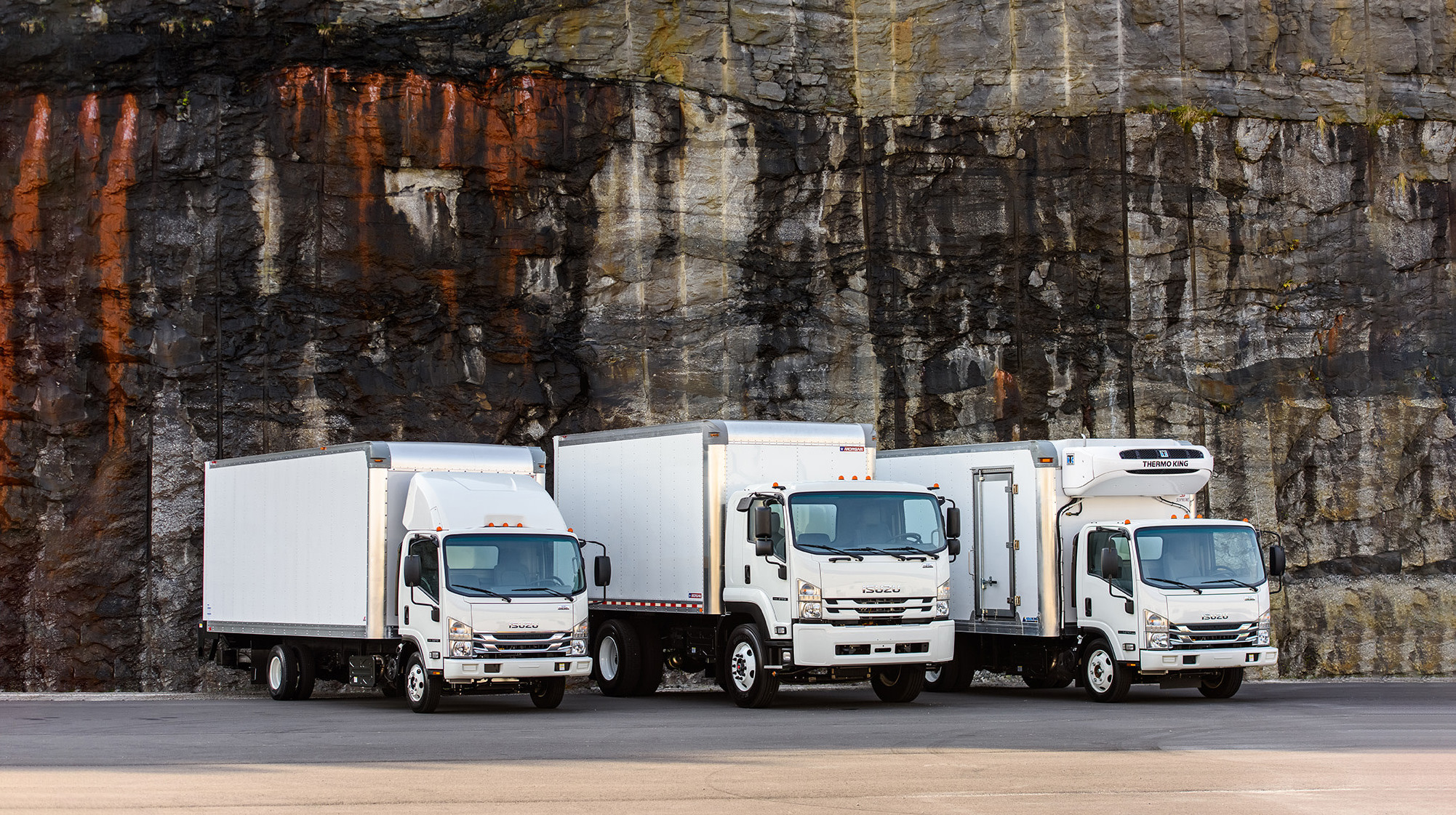Isuzu Is Teaming Up With Honda To Develop Hydrogen-Powered Trucks
While Mercedes is busy unveiling their new electric garbage truck, Isuzu is turning to Honda for clarity on their own alternative-fuel heavy truck future. That's right. They're going hydrogen.
In a press release last week, Isuzu outlined the terms of an agreement with Honda that would lay the groundwork for increased drivetrain development cooperation between the two firms.
Stressing the need to "address the on-going global challenge of reducing humanity's environmental footprint," Isuzu has approached Honda, a 30-year veteran in the hydrogen fuel-cell field, for help with the development of powertrains themselves as well as the solutions to mitigate the financial and infrastructural barriers to the proliferation of hydrogen-based alternatives to traditional internal combustion motors.
Isuzu went on to describe how the arrangement was mutually beneficial to the two companies. The truckmaker has been looking for opportunities to expand alternative fuel offerings and Honda, long a proponent of fuel-cell technology, has been looking for partners that could develop applications for its technology beyond niche models like the FCX Clarity.
Interestingly, Isuzu has turned to Honda rather than established drivetrain partner GM for their fuel-cell effort. GM supplies Isuzu with gas V8s for their medium-duty trucks and the two companies cooperate on mid-sized pickup trucks as well. GM also has a history with fuel-cell technology stretching back to the 2000s-era Hy-Wire show-car, but also as recently as a fuel-cell-powered autonomous commercial vehicle prototype called the SURUS back in 2017.
The agreement between Izuzu and Honda comes on the heels of another compact the truckmaker has made with a rival. Just last month, Isuzu and Volvo Trucks came together to form a strategic alliance of their own. Though it is not entirely clear whether that effort is intended to provide for alternative-energy development, a statement from Isuzu references the need for cooperation to "create a larger volume base to support necessary, forthcoming technology investments."
Though Volvo is considering hydrogen power, it is a little more bearish on the prospect of the technology than other players in the heavy truck market, viewing it as complementary to straight electrification. Others, like Isuzu partner Honda, are more enthusiastic.
Hino, owned by Toyota, the makers of the Mirai fuel-cell sedan, is investing heavily in the technology, and recently displayed a Kenworth-based hydrogen-powered concept truck in Califonia. That truck had a range of 300 miles and could be refueled much faster than the electric long-haul trucks promised by Tesla.
In fact, it is this quick refuel technology that has had other truckmakers, from Mercedes to Hyundai to start-up Nikola focused on Hydrogen over straight electrification when it comes to long-haul trucking.
Unlike distribution runs typically undertaken by smaller vehicles with more downtime, long-haul routes require hours at highway speeds. To keep travel times similar to diesel trucks, whatever comes next will need to refuel and get back on the road in minutes, not the hours a current EV would require to recharge. With that in mind, Hydrogen fuel-cells sound like a much better proposition for that application than a battery-electric truck. The major roadblock to that is infrastructure.
With this new venture between Isuzu and Honda, though, the focus appears to be as much on the infrastructure challenges as on the vehicles themselves. Both Honda and Isuzu recognize that partnerships are the only way hydrogen can work is if sufficient refueling infrastructure can be built. Without the infrastructure, it's hard to justify the development costs for vehicles that are penned into a range from the nearest hydrogen pump like previous fuel cell cars have been.
Of course, your project is only as good as your partners. Luckily for Isuzu and Honda, they've got history. Back in the '90s, Honda went to Isuzu for help building out an SUV lineup to meet demand. The result was the original Honda Passport and the Acura SLX. We love those two rebadges, and Honda has recently shown that they're anything but ashamed of their previous arrangement. I'd like to think that bodes well for this round of cooperation, but we'll just have to find out in due time.
